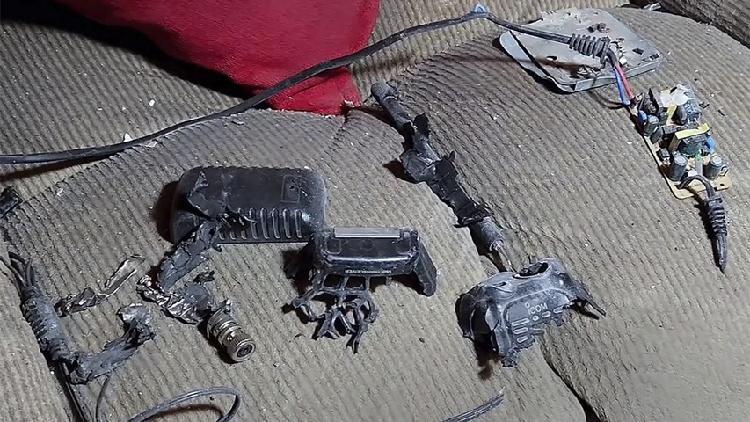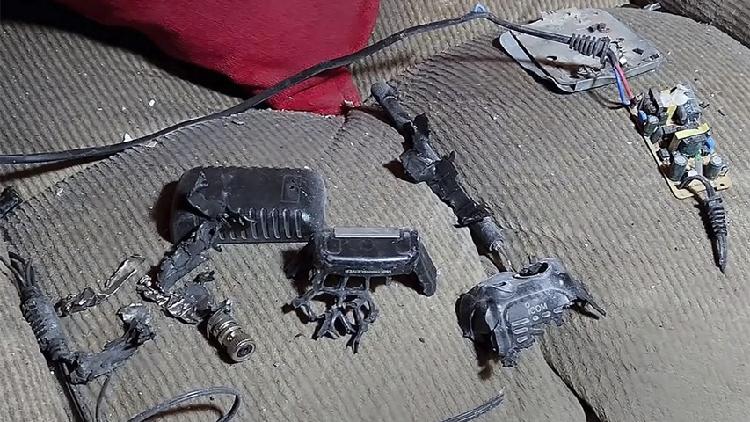Confusion surrounds companies in the Lebanon explosion cases


<img src='https://news.cgtn.com/news/2024-09-19/Confusion-surrounds-companies-in-the-Lebanon-explosion-cases-1x1OMsuEoQE/img/fc2788aaa0264452b2a204cdb21066e0/fc2788aaa0264452b2a204cdb21066e0.jpeg' alt='This video grab, shows a walkie-talkie that exploded inside a house, in Baalbek, east Lebanon, September 18, 2024. /CFP'
Thousands of handheld walkie-talkies used by Hezbollah members in Lebanon were destroyed in explosions in Beirut’s suburbs and the Bekaa Valley on Wednesday, following pagers exploding on Tuesday.
Images of the exploded walkie-talkies showed labels bearing the name of Japanese radio communications and telephone company Icom and resembled the firm’s IC-V82 model.
Response from Icom
According to The Japan Times, Icom exported its IC-V82 two-way radio to regions including the Middle East until October 2014, when it ceased production and sales of the device. It also halted production of the batteries needed to operate the main unit, the Osaka-based company said in a statement on Thursday.
Given the severe damage around the battery compartment in the photographs, Icom director Yoshiki Enomoto suggested in a Kyodo News report that the batteries might have been modified with explosives after procurement.
Ray Novak, senior sales manager for Icom America’s amateur radio division, told the Associated Press that the walkie-talkies involved in the Lebanon explosion appear to be counterfeit products and not manufactured by Icom. “I can assure you, they are not our products,” he said in an interview.
Other companies involved
Gold Apollo, the Taiwanese company that holds the brand name of the pager involved in Tuesday’s bombing, said on Wednesday that it had only licensed the use of its name on the AR-924 pager, which was manufactured by Budapest-based BAC Consulting KFT.
“According to the cooperation agreement, we authorize BAC to use our brand trademark for product sales in designated regions,” the company said in a statement. “But the design and manufacturing of the products are solely the responsibility of BAC.”
However, NBC News later quoted BAC Consulting Chief Executive Cristiana Barsony-Arcidiacono as denying any role in the pagers’ production. “I don’t make the pagers,” she told the network. “I am just the intermediate. I think you got it wrong.”
Hungarian government spokesman Zoltan Kovacs stated in a post on X, “The referenced devices have never been in Hungary.”
Hadi El Khoury, a Paris-based cybersecurity expert, told Al Jazeera, “If you don’t have your own supply chain then the device in your pocket is not hacker-proof.” He added that for many people, using technology from the West introduces potential vulnerabilities.
“When they use Siemens or Microsoft Windows or any technology that comes from the West, this means that somehow, somewhere, you will have a weak element in your chain,” El Khoury said.
(With input from agencies. Gong Zhe contributed to the story.)

